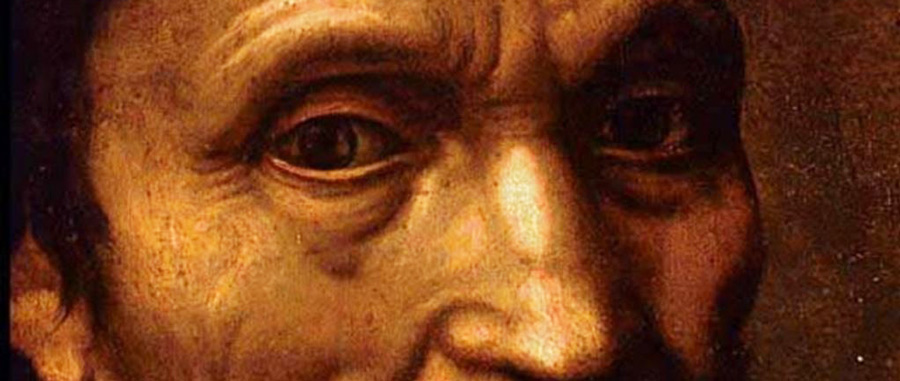In examining the intricate tapestry of human philosophy and spirituality, the writings of the ancient Roman thinker Boethius resonate with profound insights on the nature of hope, suffering, and the human condition. His seminal work, *Consolation of Philosophy*, penned during his imprisonment, presents a discourse that remains relevant, inviting us to revisit our perspectives on adversity and the pursuit of meaning. The Bahá’í teachings provide a unique lens through which to interpret Boethius’ perspectives, illuminating pathways toward hope while harmonizing with the principles of unity, purpose, and spiritual evolution.
To delve into the intersection of Bahá’í teachings and Boethius’ philosophies, one must first contextualize the essence of hope as envisaged by both thinkers. Hope, as articulated in Bahá’í writings, is not merely an ephemeral feeling, but rather a steadfast sense of expectation grounded in faith and divine promise. This is intriguingly mirrored in Boethius’ exploration of the human predicament, where he contemplates the capriciousness of fortune and the constancy of virtue. Both perspectives converge on the idea that true solace originates from within, transcending external circumstances.
Boethius eloquently argues that while fortune is fickle, the stability of wisdom and virtue provides a firm foundation. His musings prompt an inquiry into the nature of our desires—do we seek fleeting pleasures or lasting wisdom? The Bahá’í Faith posits that enduring joy and fulfillment are cultivated through the pursuit of spiritual understanding and service to humanity. This shift in perspective invites individuals to recognize that hope flourishes not in the absence of trials but in the embrace of them as opportunities for spiritual growth.
As we scrutinize the Bahá’í response to Boethius, we find an affirmation of the universality of his themes. The Bahá’í teachings advocate for a holistic approach to human experience, wherein the soul’s journey is characterized by the dualities of joy and sorrow, existence and non-existence. Herein lies a profound promise: that even the darkest moments are imbued with potential for transformation and enlightenment. Boethius’ reflections on the nature of reality align seamlessly with this assertion, encouraging individuals to cultivate resilience and a proactive stance amidst life’s adversities.
Delving deeper into the philosophical undercurrents, Boethius presents the concept of the wheel of fortune, a metaphor illustrating the ever-changing nature of worldly affairs. This cyclicity serves as a poignant reminder of the impermanence of material success and failure. In a Bahá’í context, this notion resonates with the belief in the transient nature of earthly existence, where spiritual enlightenment affords a more profound connection to reality. As Bahá’ís often endeavor to conceptualize the material world as a mere prelude to the spiritual realm, the insights of Boethius beckon us to release attachment to the temporal, enabling a life infused with purpose and understanding.
Furthermore, the convergence of Boethius’ ideas and Bahá’í teachings engenders a deliberation around the role of divine providence. In *Consolation of Philosophy*, the dialogue between Boethius and Lady Philosophy elucidates the notion that adversity may serve a divine function, guiding the soul toward a higher understanding. Similarly, Bahá’í teachings emphasize divine wisdom and the omnipotence of God’s plan for humanity, inviting individuals to trust in a benevolent order even amidst chaos. This perspective not only mitigates despair but also cultivates a fertile ground for hope, empowering individuals to navigate the vicissitudes of life with grace.
Central to both frameworks is the idea of service as a conduit for hope and healing. The Bahá’í principle of service emphasizes that alleviating the suffering of others not only fulfills a moral obligation but also enriches the giver’s own spiritual journey. Boethius’ reflections invite a similar sentiment: that by engaging in acts of virtue, one can transcend personal tribulations, finding solace in contributing to the greater good. This duality, where serving self and others becomes a pathway toward fulfillment, resonates powerfully within both the Bahá’í Faith and Boethius’ philosophical reflections, weaving a rich narrative around the interconnectedness of humanity.
Moreover, the act of seeking knowledge as an instrument of hope is another pillar that unites the teachings of Boethius with Bahá’í principles. Boethius regarded philosophical inquiry as a means of attaining clarity amid confusion, while Bahá’í teachings regard the pursuit of knowledge as a requisite for spiritual development. Both posits that the search for truth acts as a beacon during tumultuous times. This alignment encourages individuals to foster intellectual curiosity, suggesting that through understanding, one can emerge with a renewed sense of hope, courageously facing the vicissitudes of life.
In conclusion, the synthesis of Boethius’ reflections on hope and the Bahá’í teachings’ embrace of unity and purpose fosters a rich dialogue, piquing curiosity and inviting a profound reevaluation of resilience in the face of adversity. This discourse elevates our understanding of hope from a passive sentiment to a dynamic force that transforms both individual lives and the collective human experience. Embracing the insights of Boethius alongside Bahá’í wisdom paves the way for an enlightened perspective, instilling a deeper appreciation for life’s complexities and an unwavering commitment to finding hope amid the storms. By merging these philosophical strands, individuals are empowered to cultivate a life imbued with meaning, connection, and a steadfast sense of hope, echoing the timeless promise that even in darkness, light will prevail.
